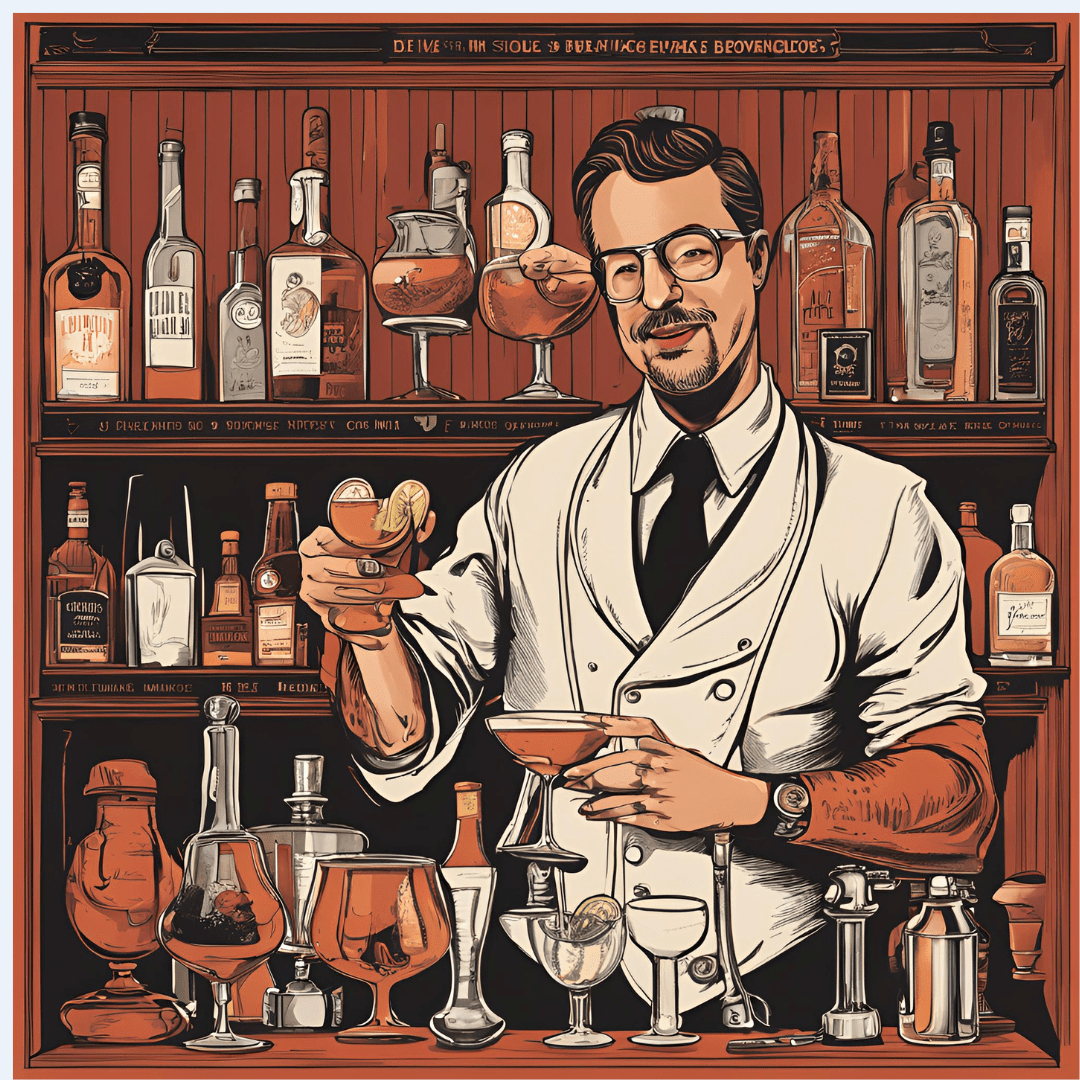
Introduction
Bartending is one field that changes almost daily with new trends and techniques. A recent study on bartenders thoroughly explains how mixology and beverage trends currently stand. This paper will discuss such insights, going in-depth into the modern bar scene, innovative cocktails, and prospects in this industry. Whether you are a professional bartender, an up-and-coming mixologist, or simply someone who loves excellent cocktails, this guide is sure to offer valuable knowledge and inspiration.
The Art of Mixology
Mixology is more than mixing drinks; it’s a form of art combining creativity, science, and flavor knowledge. The bartenders study highlights several key components of successful mixology.
- Understanding Flavor Profiles
The flavor profile of the ingredients in a cocktail is significant to understand. It includes all basic tastes such as sweet, sour, bitter, salty, and umami, how they act on each other, and the intensity and texture of flavors—for one to develop a balanced drink.
- The Role of Fresh Ingredients
Mixology requires the use of fresh, quality ingredients. Fresh fruits, herbs, and spices can make a cocktail shine with bright flavors and great aromas that just can’t be replicated from a package or produced synthetically. The study emphasizes the growing trend of bartenders sourcing local and seasonal ingredients.
- Balancing Innovation with Tradition
On the one hand, innovation will keep things interesting behind the bar; on the other hand, so is respect for traditional techniques and recipes. Many modern bartenders blend classic cocktails with contemporary twists in a way that appeals to traditionalists and those seeking new experiences.
Current Beverage Trends
The bartenders study sheds light on several prevailing beverage trends shaping the industry today.
- Craft Spirits and Artisan Cocktails
This represents one of the most significant shifts in craft spirits and artisan cocktails. Demanding to know the story behind their drinks, consumers have become keen on small-batch distilleries and handcrafted cocktails over mass-produced spirits and cocktails.
- Sustainability and Eco-Friendly Practices
Sustainability is becoming a central focus in the beverage industry. Bartenders evolve toward staying eco-friendly by reducing waste, using biodegradable straws, and sourcing raw materials sustainably. The trend is not only helping to appeal to the environmentally conscious consumer but also sets the scene for a more sustainable future.
- Non-Alcoholic and Low-ABV Options
At the moment, interest in non-alcoholic and low-ABV cocktails is quite huge. This trend is catering to people who are interested in the social aspect of having a drink but without the effects that come from consuming alcohol. Bartenders are becoming rather creative regarding these options by adding ingredients such as shrubs, infusions, and sophisticated mixers to make flavor and satisfaction in drinks still.
Innovative Cocktail Techniques
Innovation is at the heart of modern mixology. The bartenders study highlights several cutting-edge techniques that are currently popular.
Molecular Mixology
Molecular mixology involves using scientific techniques to create unique textures and presentations. This can include foams, gels, and even edible cocktails. These methods not only enhance the sensory experience but also allow bartenders to push the boundaries of traditional drink-making.
Aged Cocktails
Aged cocktails involve preparing a cocktail and then allowing it to mature in a barrel, bottle, or other container. This aging process can enhance the flavors, adding depth and complexity to the drink. This technique is gaining popularity for its ability to transform familiar cocktails into something entirely new.
Clarified Cocktails
Clarification involves removing solids from a liquid to create a clear, smooth drink. This can be achieved through methods like gelatin filtration or centrifugation. Clarified cocktails offer a clean and refined drinking experience, often with intensified flavors.
Future Trends in Mixology
The bartenders study also offers predictions for future trends in mixology and beverage creation.
Technology Integration
The integration of technology in bars is expected to increase. This can include everything from advanced cocktail machines to augmented reality menus. Technology can enhance efficiency, accuracy, and the overall customer experience.
Personalization and Customization
As consumers seek more personalized experiences, customization in cocktails will become more prevalent. This could involve tailored flavor profiles, bespoke drink presentations, and interactive elements that allow customers to be part of the cocktail-making process.
Global Influence
Global flavors and techniques will continue to influence mixology. Bartenders are increasingly drawing inspiration from international cuisines and ingredients, creating cocktails that offer a taste of different cultures. This trend promotes diversity and broadens the palate of consumers. Also, check data analysis.
Conclusion
The bartenders study offers valuable insights into the evolving world of mixology and beverage trends. From the resurgence of craft spirits to the innovative techniques transforming cocktail creation, the industry is vibrant and ever-changing. As bartenders continue to balance tradition with innovation, the future of mixology promises exciting developments and new flavors to explore.
What is mixology?
Mixology is the art and science of creating cocktails. It involves understanding flavors, techniques, and ingredients to craft balanced and innovative drinks.
What are some current trends in mixology?
Current trends include the use of craft spirits, sustainable practices, and the creation of non-alcoholic and low-ABV cocktails. There’s also a focus on innovation through techniques like molecular mixology and aged cocktails.
Why is sustainability important in the beverage industry?
Sustainability is important because it reduces environmental impact, promotes the use of local and seasonal ingredients, and meets the growing consumer demand for eco-friendly practices.
What is molecular mixology?
Molecular mixology uses scientific techniques to create unique textures and presentations in cocktails. This can include creating foams, gels, and other innovative elements.
What are aged cocktails?
Aged cocktails are prepared and then allowed to mature over time in a barrel, bottle, or other container. This process enhances the flavors and adds complexity to the drink.
How is technology changing the bar industry?
Technology is improving efficiency, accuracy, and the customer experience in bars. This includes advanced cocktail machines, digital menus, and interactive elements that enhance the overall drinking experience.
Explore More :


